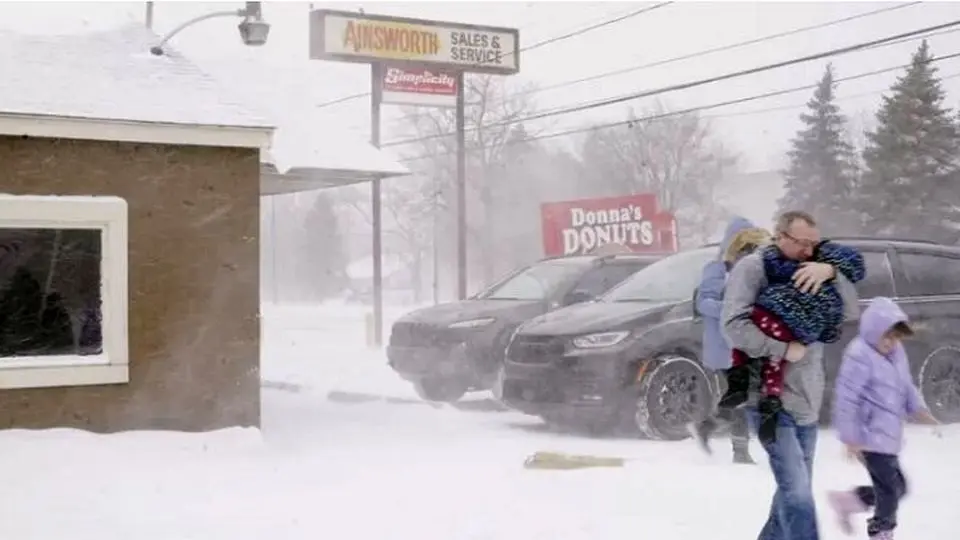Arctic blast kills at least 28 in US, stunting travels
A massive winter storm has left at least 28 people dead and about 380,000 homes and businesses without power across the US, where more than 8,000 flights have been canceled since Friday due to the Arctic blast.

MEHR: A massive winter storm has left at least 28 people dead and about 380,000 homes and businesses without power across the US, where more than 8,000 flights have been canceled since Friday due to the Arctic blast.
The National Weather Service (NWS) reported that the storm was almost unprecedented in its scope, stretching from the Great Lakes near Canada to the Rio Grande River along the border with Mexico.
Weathermen said that temperatures had nosedived drastically below normal from east of the Rocky Mountains to the Appalachians, in the aftermath of the so-called bomb cyclone. According to them, this natural phenomenon developed near the Great Lakes, causing blizzard conditions, including heavy winds and snow.
The NWS also said that “the life-threatening cold temperatures and dangerous wind chills will create a potentially life-threatening hazard for travelers that become stranded.”
Bad weather-related deaths have been registered in a wide number of US states, including Colorado, Kansas, Kentucky, Missouri, Michigan, Nebraska, New York, Ohio, Oklahoma, Tennessee, Vermont and Wisconsin.
Erie County Executive Mark Poloncarz from New York State told reporters on Saturday that blizzard conditions are expected to continue through at least Sunday morning.
He warned that the winter storm could persist for at least the next 36 hours, with the blizzard warning in effect until 7 a.m. Christmas morning.
“This is still a life-threatening situation. This is nothing to be trifled with,” Poloncarz stressed, adding that National Guard troops were arriving to “rescue people that are stuck in vehicles.”
He was echoed by the county’s Deputy Commissioner of Disaster Preparedness and Homeland Security Gregory Butcher, who suggested that the storm will be significant “for days to come.”
Buffalo Diocese Bishop Michael W. Fisher, for his part, called on churches to Livestream Christmas Mass because of the severe weather. “Although it is Christmas, in these dangerous conditions, no one should put themselves or others at risk,” he tweeted.
آخرین اخبار News را از طریق این لینک پیگیری کنید.




